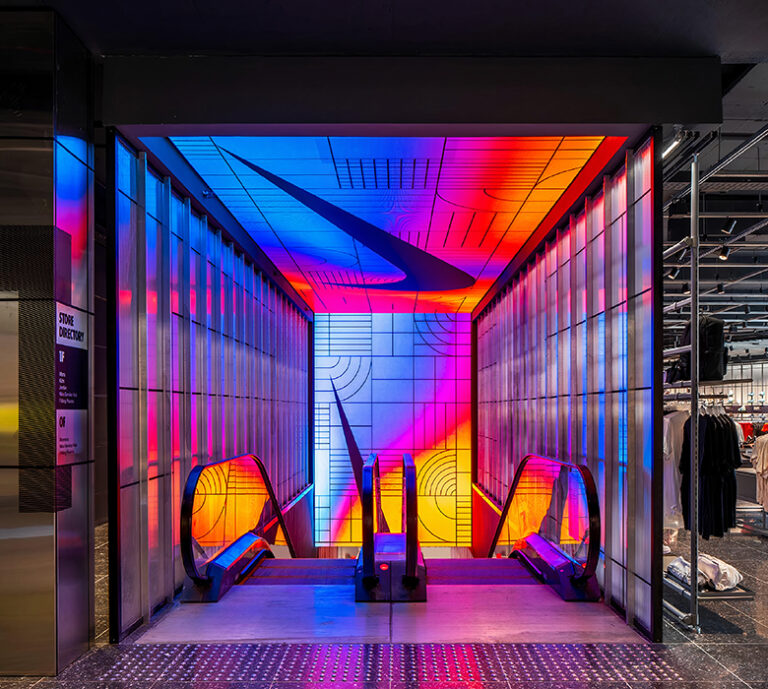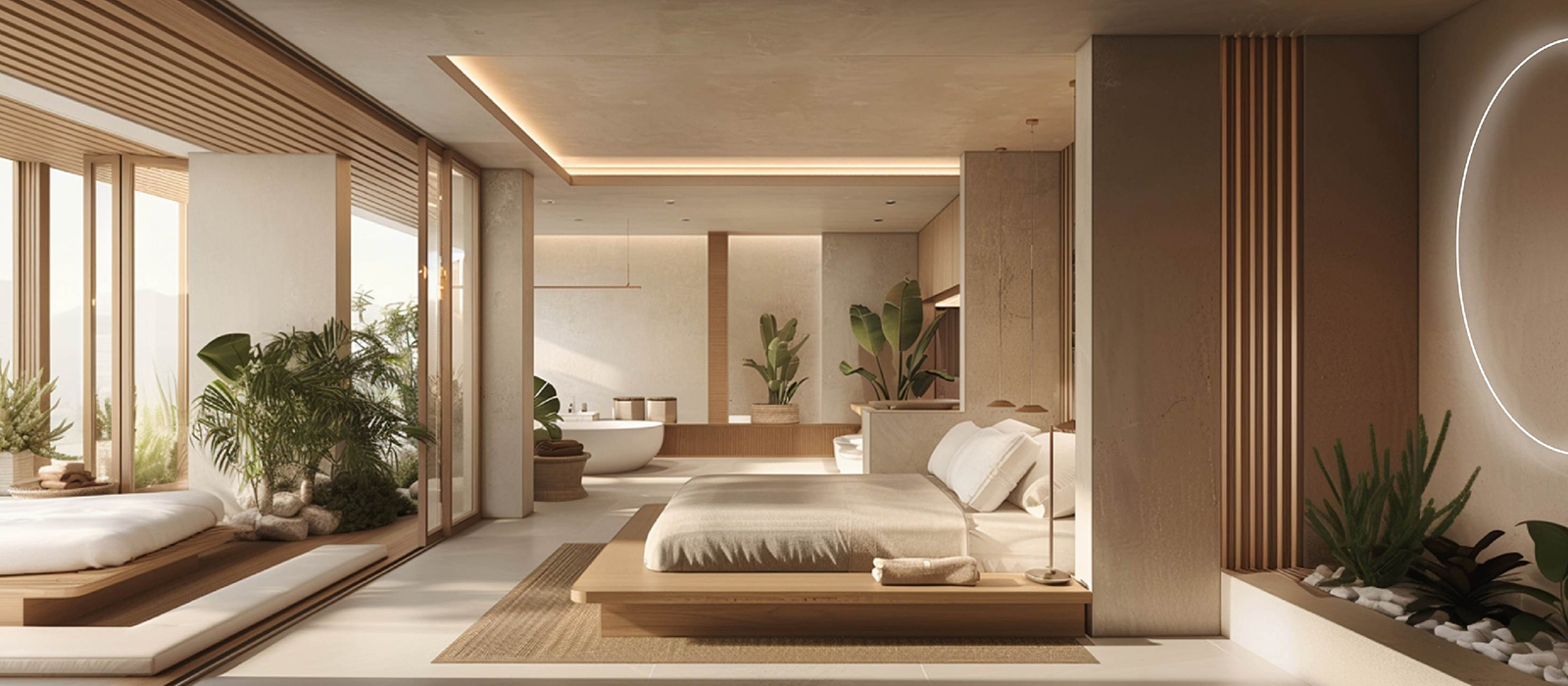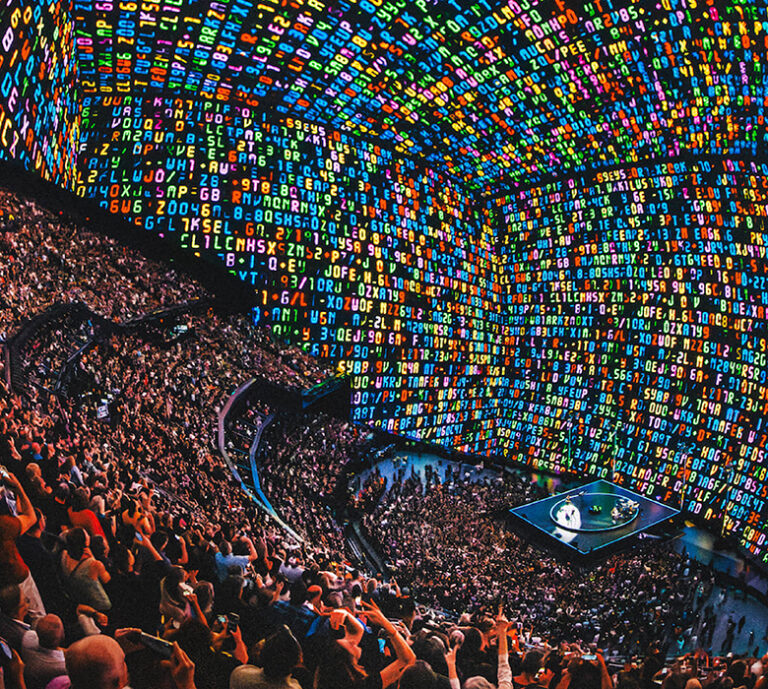
From Want to Necessity: How the Wellness Revolution is Changing the Hospitality Industry

Our Director of Strategy, Alexa Jewell Schaefer, shares how hotels are responding to consumers’ prioritization of health and wellness, and what that means for the future of the hospitality industry.
The hospitality industry is undergoing a profound transformation, as health and wellness is increasingly prioritized as an integral part of the customer experience. Travel is no longer being viewed as a luxury, but instead is becoming an essential part of maintaining our well-being. This change is driven by the public’s increased focus on physical and mental health, which is in turn redefining travel’s role in our lives.
Traditional View: Hospitality as a “Want”
Historically, the hospitality industry has catered primarily to two segments: business travelers and leisure seekers. While business travel was often seen as a necessity, leisure travel was firmly entrenched in the “want” category. This reflected not only in how people budgeted for and prioritized travel experiences, but also in the very fabric of the hospitality industry’s offerings and marketing strategies.
For decades, hoteliers positioned themselves as escape hatches from the daily grind, promising fleeting moments of fun, joy, luxury, and relaxation. The message was clear: these were indulgences, not necessities. This view was reinforced by societal norms and workplace cultures that often frowned upon extended time off or viewed vacations as potential productivity drains.
A 2019 study by the U.S. Travel Association found that a staggering 55% of Americans didn’t use all their paid vacation days, often citing work-related pressures and financial concerns as reasons for forgoing time off.
Moreover, the economic model of the hospitality industry was built on this “want-based” foundation. Pricing strategies, particularly in the luxury segment, reflected the perception of travel as a premium product. Seasonally, in pricing and occupancy rates, further emphasized the view of travel as something occasional and special, rather than a regular part of a balanced life.
The Wellness Revolution
However, the past decade has witnessed a seismic shift in how we approach health and well-being, with repercussions felt across industries – none more so than hospitality. The global wellness economy, encompassing everything from fitness and nutrition to mental health and alternative medicine, was valued at $4.9 trillion in 2019 and is projected to reach $7 trillion by 2025. This growth reflects a broader societal recognition of the importance of holistic health, stress reduction, and work-life balance.
At the heart of this wellness revolution is a fundamental reassessment of what constitutes a healthy, fulfilling life. No longer content with a narrow definition of health as merely the absence of illness, consumers are increasingly seeking out experiences and products that promote physical, mental, and emotional well-being.
Travel, once seen primarily as a form of escape or indulgence, is increasingly being viewed as a vital tool for maintaining mental and emotional balance. According to a survey by American Express Travel, 73% of respondents are planning vacations to improve their mental and physical health, with 60% of Gen Z saying they go out of their way to book hotels that offer wellness services.
The wellness revolution has also led to a blurring of lines between various sectors. We’re seeing an increasing overlap between hospitality, healthcare, and wellness industries. Spa resorts are offering medical-grade treatments, while hospitals are taking cues from hotels to create more welcoming, stress-reducing environments.
Furthermore, the pandemic accelerated many of these trends. The global health crisis brought issues of mental health and well-being to the forefront, with many people reassessing their priorities and lifestyles. As we emerged from the pandemic, there was a spike in what was called “revenge travel” – a desire to make up for lost time and experiences and has since shifted to a newfound appreciation for health and wellness, leading to a demand for travel experiences that nourish the mind and body, not just entertain.
Travel as Medicine
The concept of travel as medicine is gaining traction, with the idea of doctors prescribing vacations or wellness retreats as a form of treatment becoming more mainstream. According to the Global Wellness Institute, the wellness tourism market is projected to grow to $1.1 trillion by next year.
Moreover, the concept of travel as medicine is not limited to leisure travel. There’s growing recognition of the need for regular breaks and travel even within the context of work.
As this trend continues to gain momentum, we can expect to see more collaborations between the medical community and the hospitality industry. Hotels and resorts may begin offering packages designed in consultation with healthcare professionals, targeting specific health concerns or wellness goals.
The Hospitality Industry’s Response
Forward-thinking hospitality brands are adapting to this shift, positioning themselves as partners in their guests’ health and wellness journeys. We’re seeing a rise in wellness-focused hotels and resorts that offer far more than just a place to sleep. These properties are integrating elements like meditation spaces, state-of-the-art fitness facilities, nutrition-focused restaurants, and nature experiences into their core offerings. The goal is to create environments that not only allow guests to maintain their healthy habits while traveling but actually enhance their overall well-being.
Just last month, SBE, led by hotelier Sam Nazarian in partnership with entrepreneur Tony Robbins, recently launched The Estate Hotels & Residences, aiming to create “the largest ecosystem of preventative medicine and longevity in the world” by 2030. The Estate plans to open 15 hotels and 10 preventative medicine and longevity centers, offering cutting-edge medical services like AI-powered diagnostics, epigenetics, and advanced blood tests alongside luxury accommodations. This development underscores the growing demand of high-end hospitality and advanced healthcare, reflecting a market where wellness is no longer just an amenity but a core offering—something travelers need.
Six Senses Resorts have pioneered the concept of “Integrated Wellness,” which includes personalized programs combining fitness, spa treatments, and nutrition. Upon arrival, guests can opt for a wellness screening that measures key physiological biomarkers. Based on the results, the resort’s wellness experts create a personalized program for the guest’s stay, which might include specific fitness activities, spa treatments, and dietary recommendations.
Many hotels are incorporating wellness technology into their offerings, from air purification systems and circadian lighting to smart mattresses that adjust to guests’ sleep patterns. Apps that allow guests to customize their wellness experience, from booking spa treatments to ordering health-focused room service, are becoming the new norm.
Conclusion
The hospitality industry stands at a pivotal moment in its evolution. As society increasingly recognizes the health benefits of travel and time away from daily stressors, we’re witnessing a fundamental shift in how we perceive hospitality services. No longer just a luxury or a want, travel and hospitality are emerging as essential components of a healthy, balanced life.
This shift presents both challenges and opportunities for industry leaders. Those who can successfully position their offerings as integral to health and wellness, will likely find themselves at the forefront of this new era in hospitality.
A vacation might be more than just a break from routine—it could be a prescription for better health, a catalyst for personal growth, and a vital investment in one’s overall well-being. As this trend continues to unfold, it promises to reshape not just the hospitality industry, but our very understanding of what it means to travel, to relax, and to truly thrive in today’s world.
Related Topics
Related Articles


